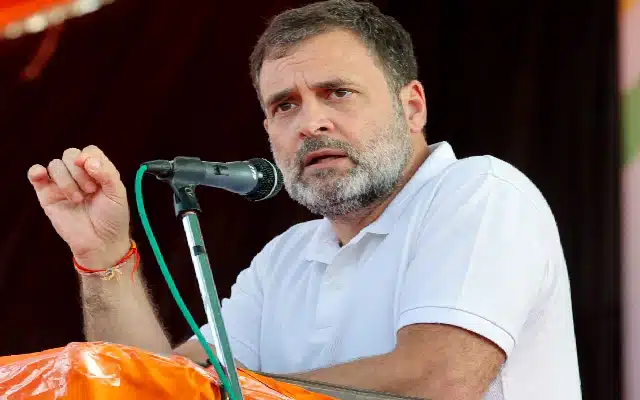
John F Kennedy once said “The purpose of foreign policy is not to provide an outlet for our own sentiments of hope or indignation; it is to shape real events in a real-world”. This reflects perfectly on a country’s foreign policy. After a tense fight in the US election, Joe Biden Jr. has been elected as the President and it presents an interesting picture on what his administration might pursue as its foreign policy objectives. Keeping aside the controversies that the presidential election witnessed, the article will largely focus on how the new Biden administration will engage with India and other countries in South Asia.
Although President Biden has embarked on overturning the executive orders passed by his predecessor, Donald Trump on a range of issues like the Paris Agreement, there appears to be a similarity in views with engagement in South Asia. Like Trump, Biden emphasizes on troop withdrawal from Afghanistan coupled with a robust engagement with Pakistan to ensure that the Afghan peace accord remains intact. The Trump’s administration was particularly rough in its engagement with Pakistan to reign in terror elements operating on its soil, revoked the country’s status as a major non-NATO ally, suspended security assistance in 2018, restricted the movement of Pakistani diplomats in the US and ended the military and education programme. On the other hand, Joe Biden is no stranger to Pakistan where he was instrumental in shaping the Kerry-Lugar Bill signed in 2009 which provided non-military aid of $700 million to the Islamic nation between 2010 and 2014. He was even awarded Pakistan’s highest civilian award, Hilal-i-Pakistan for his support to the country. Now, by appointing Sumona Guha as the new Senior Director for South Asia at the National Security Council, President Biden is signalling the importance of this region. Ms. Guha is a former Foreign Service officer who was a part of Biden’s transition team. She had earlier served as the Deputy Director for Afghanistan Affairs in the Office of the Special Representative for Afghanistan and Pakistan as well as special advisor for National Security Affairs when Joe Biden was Vice-President. Biden is probably trying to signal the importance of India as a strategic partner and that is reflected in his move to appoint several Indian-Americans in his cabinet. These optics could be the indicators, but they might not necessarily be the defining factor.
India has been an important strategic partner for the United States and there has been consistency in how the two countries have strengthened the bilateral ties for over two decades. There has been a major understanding on various issues with the exception on trade and immigration policies. Both the countries have tried to strike a deal, however despite the bonhomie between Trump and Prime Minister Narendra Modi, the deal was far from being conclusive. There was a brief exchange of import tariff hikes between the two countries over commodities like dairy products, certain medical devices, steel and aluminium. Trump had even removed India from countries eligible for the Generalised System of Preferences (GSP). India will be hopeful that the Biden administration will go easy on both trade and immigration issues. President Biden had even campaigned to lift Trump’s restrictions on the issuance of worker visa and expand the number of high-end visas while also promising to eliminate the country-based quota for the same.
Smaller South Asian states like Nepal, Bangladesh and Sri Lanka is unlikely to be prioritised to counter the growing Chinese influence in the region. Instead, there are apprehensions that the new administration in Washington DC might get tougher with them on issues revolving around human rights, subversion of democracy and others. However the island nation of Maldives can be prioritised ever since the US announced to establish an embassy in Male. In September 2020, the US and Maldives signed a defence cooperation deal to counter the Chinese navy’s presence in the Indian Ocean. If these speculations turn out to be true, it gives an opportunity for India to engage with the neighbouring countries in dealing with the growing Chinese tentacles over issues like debt-trap and project itself as a responsible, regional power. The US with its limited engagement can assist India in bolstering its chances to deter Chinese incursions in disputed areas as well as conducting naval exercises in the Indian Ocean.
Though the indications are positive, there have been eyebrows raised over the new President even before he got into the White House. Indian analysts and media channels have been watchful about the views that Joe Biden and Vice-President Kamala Harris shared on India’s internal matters. The removal of the special status enjoyed by the erstwhile state of Jammu and Kashmir as well as enacting the Citizenship Amendment Act, irrespective of the requirements, have been touched upon by the two leaders. The possibility of similar issues being raised in addition to India’s defense cooperation with Russia over the S-400 deal might irritate the Biden administration and consequences cannot be ruled out. It is true that India received a waiver to buy these weapons earlier, but it is speculated that it is unlikely to continue. In his farewell address, the outgoing US Ambassador to India, Kenneth Juster warned India that the US could invoke Countering America’s Adversaries Through Sanctions Act (CAATSA) if it pursued its interest in buying the S-400 missiles. There are questions over Joe Biden replicating Barack Obama’s policy towards China which promised greater show of force (‘Asia Pivot’ strategy), yet could do very little to counter the threat. A general view that Biden will soften the stance against China has been prevalent considering his friendship with Xi Jinping who he has known since his stint as Vice-President. India will be observing this closely nevertheless.
The uncertainty looms over the Biden administration, but it would be myopic to view the new President negatively. As much as there has been an emphasis on the negatives, some of these fears can be allayed by the very dynamic nature of the bilateral relationship between India and the United States which has been on a positive trajectory. It must be noted that Joe Biden had even convinced former President George Bush Jr. to withdraw sanctions against India. Perhaps, India can hope to find an important friend in Biden as much as it did with its predecessors since the beginning of this century. There are possibilities that Biden might not risk ties with India over issues sensitive to the latter’s interests despite the controversial statements made earlier. A robust partnership with the US can be an opportunity for India to ease tensions with Iran which took a major hit when Trump was the President. Cooperation in tackling climate change can receive greater attention. The gains might outweigh the losses for India and the US which would be crucial for South Asia as a whole.
About the author;
Vibhav Kandlur holds a master’s degree in Geopolitics and International Relations from MAHE. His area of research largely focuses on the Geopolitics of South Asia, specifically on Pakistan and counter-terrorism studies.


















